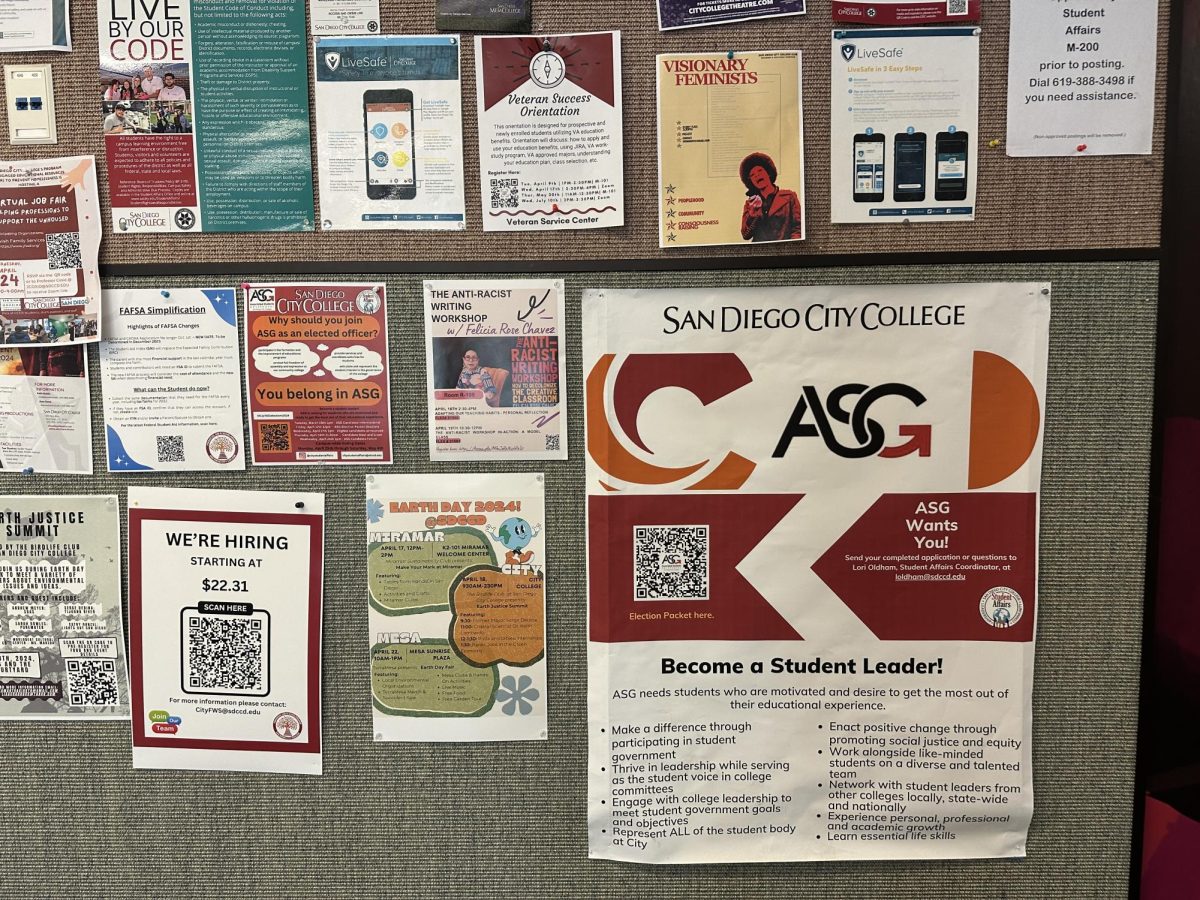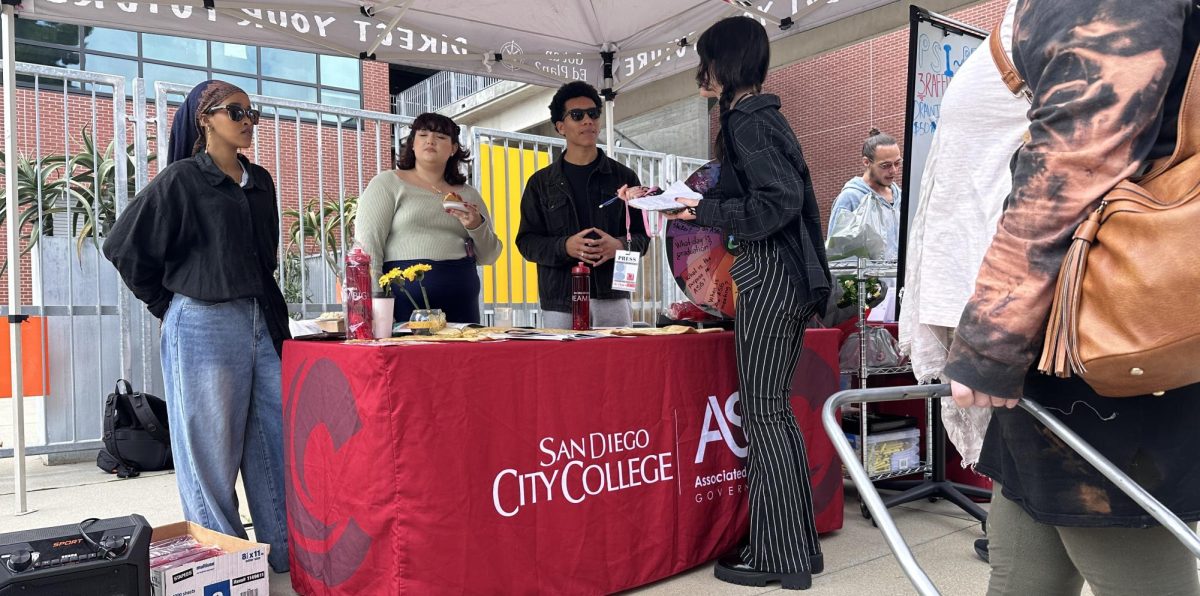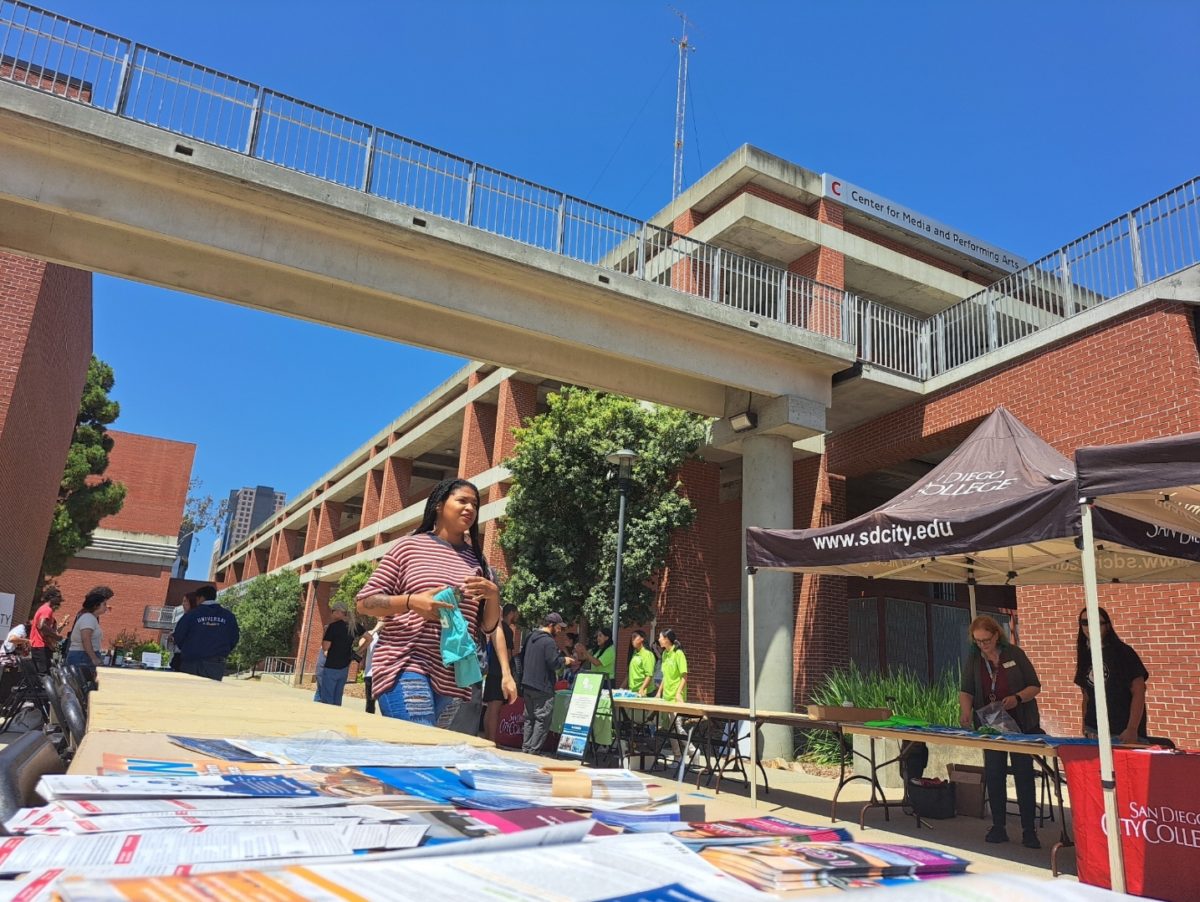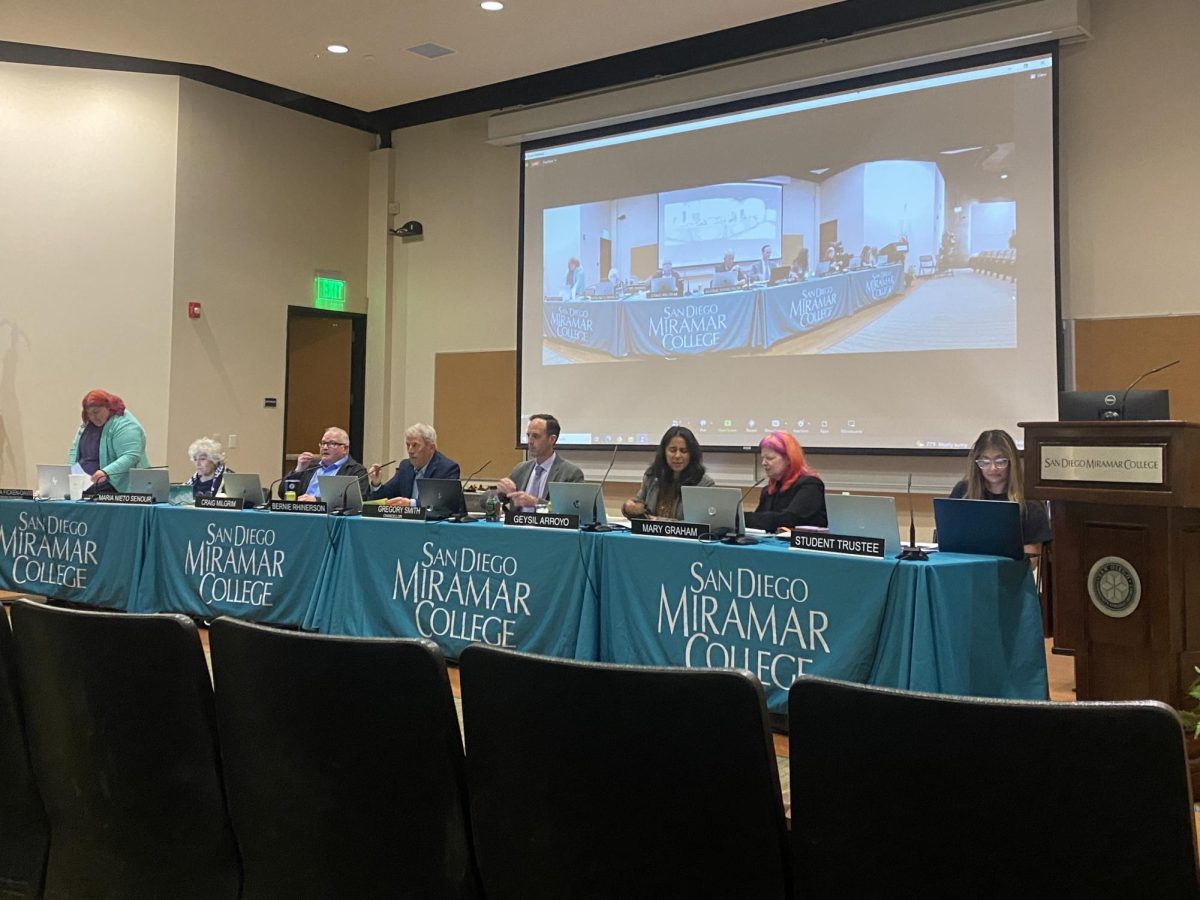By Josie Salazar and Rebecca Saffran
City Times
Award-winning journalist Sonia Nazario was invited by City College’s Chicano Studies department as part of World Cultures Spring 2007 to talk to students about immigration issues and her new book “Enrique’s Journey,” which is based on her L.A. Times articles in the Saville Theatre March 8.
Nazario won several awards for her series of articles and her book, including two Pulitzer Prizes and the Grand Prize at the Robert F. Kennedy Journalist Awards. She is now a projects reporter for the L.A. Times, and has written intensively about issues in Latin America and in the United States.
In her presentation, Nazario discussed immigration issues relating to her book. She reported in addition to the one million immigrants each year who come to the U.S., woman and children make up more then half of the estimated 12 million illegal immigrants from Latin America in the U.S. today.
She stated that one in four of the estimated 850 thousand each year, who come across illegally are in California.
“That’s doubled the rate then in the 1980s and 1990s,” she said, “We really are experiencing the largest wave of immigration in this Nation’s history.”
Nazario said that one in four children in public schools nation-wide is an immigrant or a child of an immigrant.
“A big part of who these migrants are, are these single mothers,” she said.
Nazario explained that her book is based on her experiences of traveling through Latin American countries tracing routes that young Latin American children take alone in order to find their often-time single mothers whom left them with other family members years before in search for better paying jobs in the U.S. They promise their children that they will come back in one or two years, but often stay away for several.
She said that many of these mothers make this difficult choice based on poor living conditions, living in what she called “shacks” with no running water, dirt floors and starvation, not being able to feed their children more then once a day.
Her book depicts a true account of an 11-year-old Honduran boy who braves many perils of danger in crossing thousands of miles to the U.S. border to find his mother in North Carolina with only the clothes on his back and the phone number for his mother on a little piece of paper.
She said that there is an “army of children” who make the journey every year, and that 48,000 children traveled in this way in 2001. And that approximately 100,000 had crossed in 2006, ranging from teenagers to as young as seven years old.
She reported that many of the single mothers, children and other migrants travel on tops of trains and face peril, in places like Chiapas that the migrants call the “heart of darkness,” bandits with machetes ready to rob, rape , or throw them off the trains. She reported that many of the migrants do not make it to the border, being killed by the bandits, or from jumping off the trains and getting stuck under the wheels.
She talked about how she saw several shelters ran by local villagers along the railways who have taken wounded migrants in to care for them, often in a one-room home. She said that many of the wounded are mothers and children, and many have lost limbs.
She also said that many villagers in many Latin American countries will line up as the trains pass just to pass out what little food and water that they can and sometimes blankets to the migrants traveling on top. A woman in Vera Cruz, who claims to be 100, told Nazario she gathers food baskets daily so her 70-year-old daughter can take them to the tracks.
She discussed that many of the migrant single mothers that are now working in the U.S. such as nannies or housekeepers, have often left their own children, faced the perils of the trains just to come here hoping for a better chance of helping their families survive.
However, many do not realize that it is harder then they thought, and most often, these single mothers don’t see their children for 10 years or more, unless their children make it, traveling the same routes, facing the same peril.







